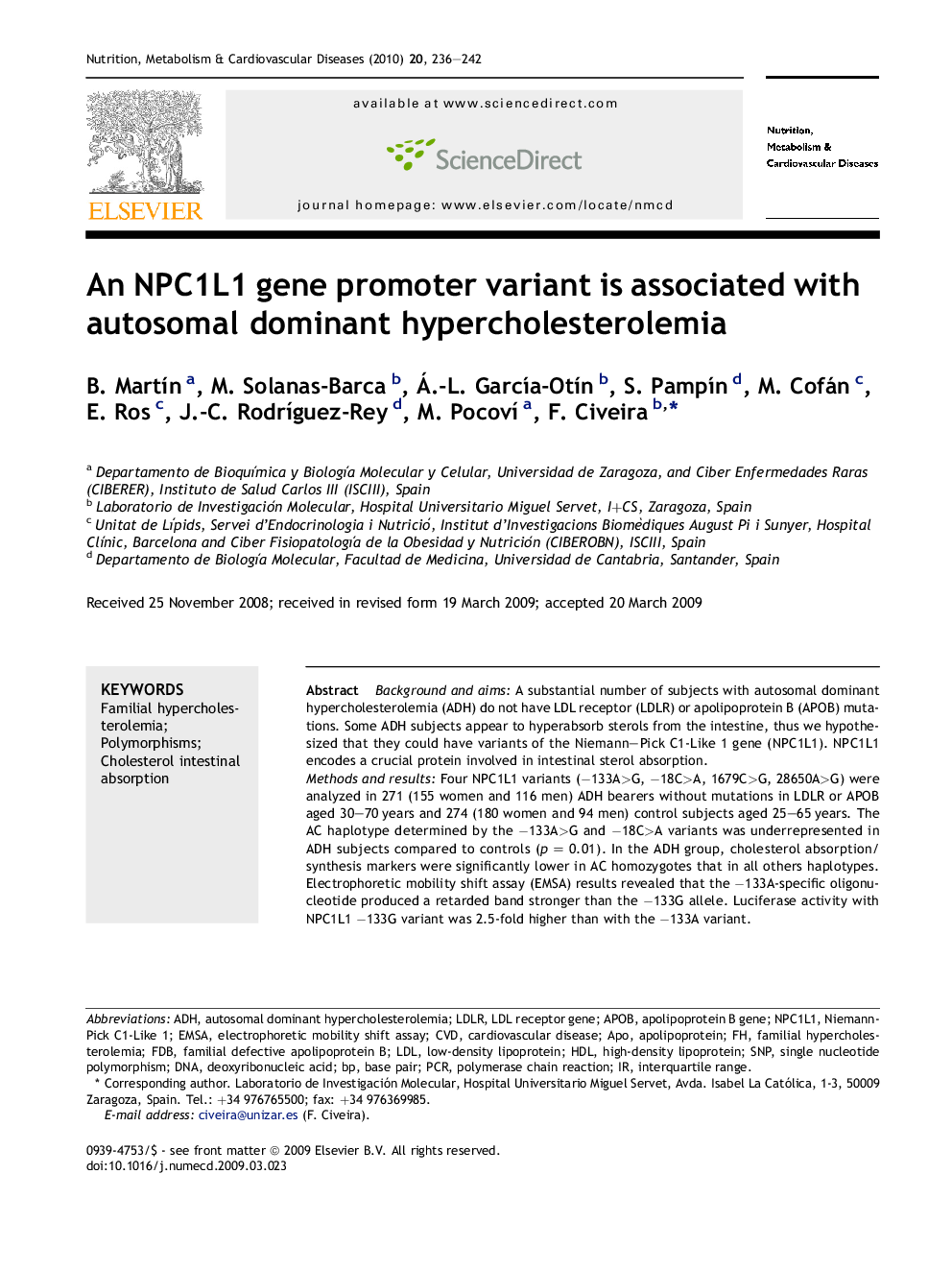| Article ID | Journal | Published Year | Pages | File Type |
|---|---|---|---|---|
| 3002971 | Nutrition, Metabolism and Cardiovascular Diseases | 2010 | 7 Pages |
Background and aimsA substantial number of subjects with autosomal dominant hypercholesterolemia (ADH) do not have LDL receptor (LDLR) or apolipoprotein B (APOB) mutations. Some ADH subjects appear to hyperabsorb sterols from the intestine, thus we hypothesized that they could have variants of the Niemann–Pick C1-Like 1 gene (NPC1L1). NPC1L1 encodes a crucial protein involved in intestinal sterol absorption.Methods and resultsFour NPC1L1 variants (−133A>G, −18C>A, 1679C>G, 28650A>G) were analyzed in 271 (155 women and 116 men) ADH bearers without mutations in LDLR or APOB aged 30–70 years and 274 (180 women and 94 men) control subjects aged 25–65 years. The AC haplotype determined by the −133A>G and −18C>A variants was underrepresented in ADH subjects compared to controls (p = 0.01). In the ADH group, cholesterol absorption/synthesis markers were significantly lower in AC homozygotes that in all others haplotypes. Electrophoretic mobility shift assay (EMSA) results revealed that the −133A-specific oligonucleotide produced a retarded band stronger than the −133G allele. Luciferase activity with NPC1L1 −133G variant was 2.5-fold higher than with the −133A variant.ConclusionThe −133A>G polymorphism exerts a significant effect on NPC1L1 promoter activity. NPC1L1 promoter variants might explain in part the hypercholesterolemic phenotype of some subjects with nonLDLR/nonAPOB ADH.
